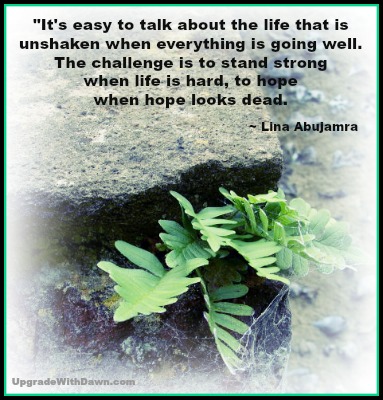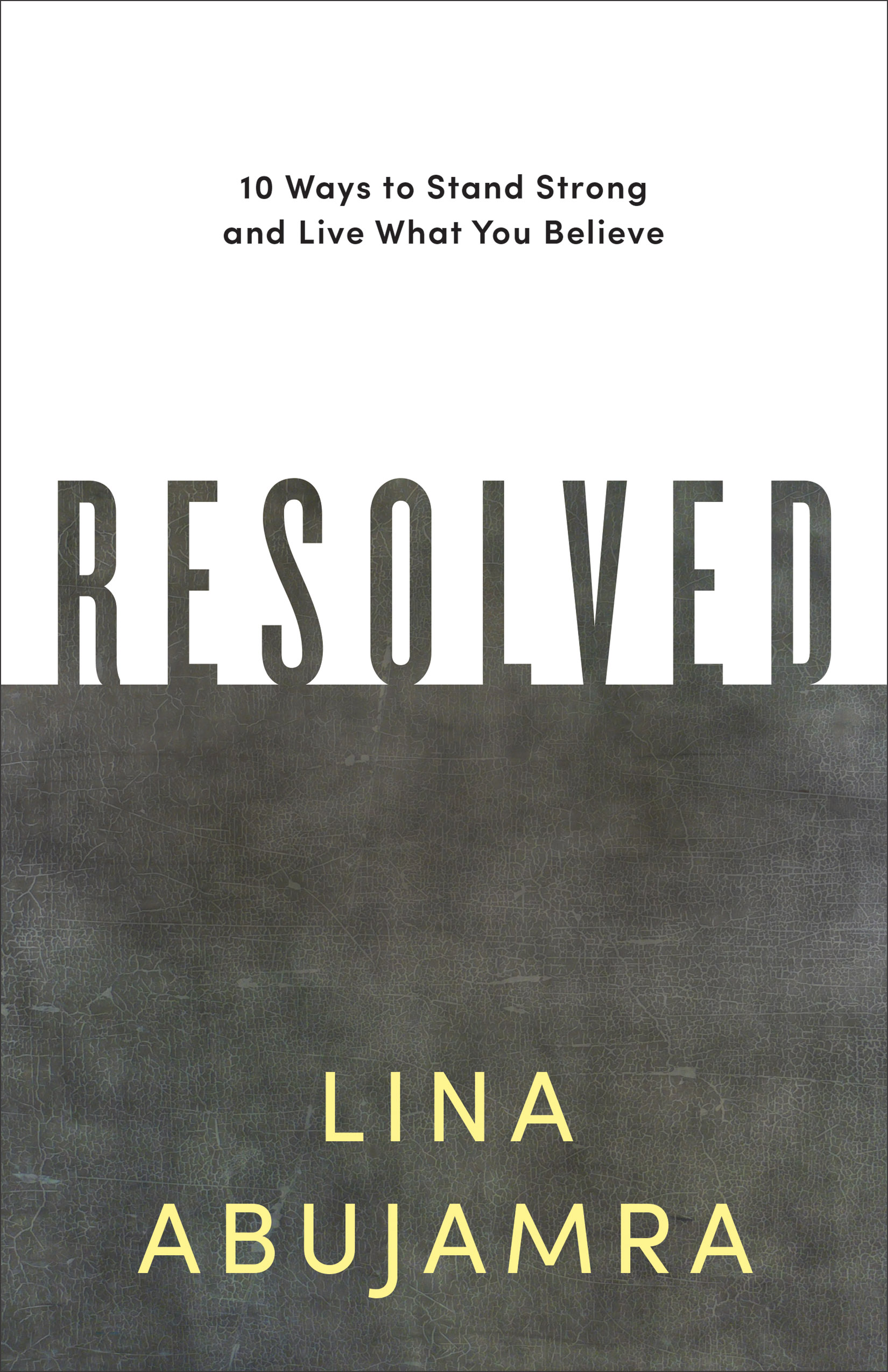A Thankful Heart Produces a Blessed Life
I've observed Julie Watson go through a severe testing of "waiting," and then the blessings God  poured into her heart and life. In this special UPLIFT, she shares one of the things the Lord taught her during the long wait: Thankfulness.
poured into her heart and life. In this special UPLIFT, she shares one of the things the Lord taught her during the long wait: Thankfulness.
“Whoever said ‘Cleanliness is next to godliness’ must have been one difficult Mother-In-Law to impress!" Julie says. "I believe a more accurate description is ‘Thankfulness is next to godliness.’”
The two thoughts that came to my (Dawn's ) mind when I read Julie's post today were: I think any child would want a mom like Julie; and I want to be a more thankful person!
Julie continues…
Thankfulness, gratefulness, heartfelt appreciation for all that God has blessed me with is something I think about almost every day. It’s an attribute of Christ I wish to instill in the hearts of my children. *
The words “thank you” are said in my home at least 20 times a day, or at worst, a gentle reminder to do so is given to an otherwise distracted and forgetful child.
But, let’s be honest. Having a thankful heart is hard to have on difficult days, especially when you find yourself in the midst of an unexpected life storm!
We recently finalized the adoption of our three beautiful children just a few months ago. PRAISE JESUS! It was such a blessing for our family to finally be official!
What a difficult, nearly two-year journey it had been. There were many days I was thankful during that time:
- Thankful when my oldest, who was filled with anger, stopped chasing his sister around trying to rip her hair out.
- Thankful when my youngest son stopped hiding behind furniture when he didn’t want to talk, or more accurately, “grunt” at us for something he wanted.
- Thankful when my daughter, in tear-filled panicked cries, stopped screaming for me not to leave her, as her bio mom had done so many times before.
I slowly learned to be thankful for every small step in the process. In fact, it is still what keeps me in check today!
Ultimately, seeing the huge progress my kids have made in the relatively short time we’ve had them has given me such a sense of joy and contentment. I feel blessed! It helps me stay focused on the good stuff and not so much on the obstacles in front of us.
However, it wasn’t always this way (and at times, I still struggle).
Between the temper tantrums, power struggles, constant lying (still working on this one), destruction of our property, issues in school with stealing and cheating, and days where I just felt completely alone with three little "monsters" ready to drive me into an early grave—I seriously have WAY more gray hair than I ever expected at this age—I can honestly say, I was NOT thankful.
Many tears were shed during my quiet times with God, begging Him to reconsider this path He had placed me on.
This Ministry of Motherhood He had bestowed upon me after waiting 17 years was NOT all it was cracked up to be!
I remember telling Him quite clearly that He “had picked the wrong mom for this job.” And, “You’re crazy, God, if you think I can do this!”
Looking back, I’m sure He just sat up on His heavenly throne saying, “Wait... just wait, child. What I am doing through you will be more amazing than you could ever imagine!”
That is truly where the thankfulness begins.
Trusting in God as you wait upon Him during those hard days... those life storms! Being grateful for each small victory and not focusing on the mountain still before you.
Every day after that it’s simply a choice.
You have to CHOOSE to be thankful in all things. You have to PRACTICE it.
You have to rely on the goodness and faithfulness of our loving Father who has something so amazing, you won’t believe it—until you do.
A thankful heart produces a deeper, more intimate walk with Christ and a blessed life.
Here are some verses to encourage a thankful heart:
- "O give thanks to the LORD, for he is good; for his steadfast love endures forever!" (1 Chronicles 16:34, also Psalm 106:1)
- "Give thanks in all circumstances; for this is the will of God in Christ Jesus for you" (1 Thessalonians 5:18).
- "And whatever you do, in word or deed, do everything in the name of the Lord Jesus, giving thanks to God the Father through him" (Colossians 3:17).
- "Do not be anxious about anything, but in everything by prayer and supplication with thanksgiving let your requests be made known to God" (Philippians 4:6).
- "For everything created by God is good, and nothing is to be rejected it it is received with thanksgiving, for it is made holy by the word of God and prayer" (1 Timothy 4:4-5).
Are you struggling with being thankful? Do you have a hard time trusting God to complete a good work in the midst of a life storm? Remember He cares for you and will speak to your heart if you open His Word and simply listen. Start thanking Him for some small victories today!
 Julie Watson worked in women’s and children’s ministries for 10 years and as an Executive Director and Grant writer before becoming a stay-at-home mom to three beautiful children. She and her husband, Shawn know these children were hand-picked by God to be their own, and officially adopted them in the spring of 2016. God is good!
Julie Watson worked in women’s and children’s ministries for 10 years and as an Executive Director and Grant writer before becoming a stay-at-home mom to three beautiful children. She and her husband, Shawn know these children were hand-picked by God to be their own, and officially adopted them in the spring of 2016. God is good!
* Note from Dawn: I had never actually thought about thankfulness being an attribute of Jesus, but it is! We see Him giving thanks in John 6:11, and in many other places in scripture He offered private and public appreciation for the good deeds people showed—He thanked the Father and He gave credit on earth where it was due—a wonderful example for us.
Graphic, adapted, courtesty of HotBlack, Morguefile.
 Post a Comment → Posted on
Post a Comment → Posted on  Tuesday, November 8, 2016 at 8:22AM
Tuesday, November 8, 2016 at 8:22AM  Grateful,
Grateful,  Gratitude,
Gratitude,  Jesus Gives Thanks,
Jesus Gives Thanks,  Julie Watson,
Julie Watson,  Teaching Children Gratitude,
Teaching Children Gratitude,  Thankful Heart,
Thankful Heart,  Thankfulness,
Thankfulness,  Thanksgiving,
Thanksgiving,  Upgrade with Dawn Upgrade Your Life
Upgrade with Dawn Upgrade Your Life  Attitudes,
Attitudes,  Thanksgiving,
Thanksgiving,  UPLIFT Encouragement
UPLIFT Encouragement 













